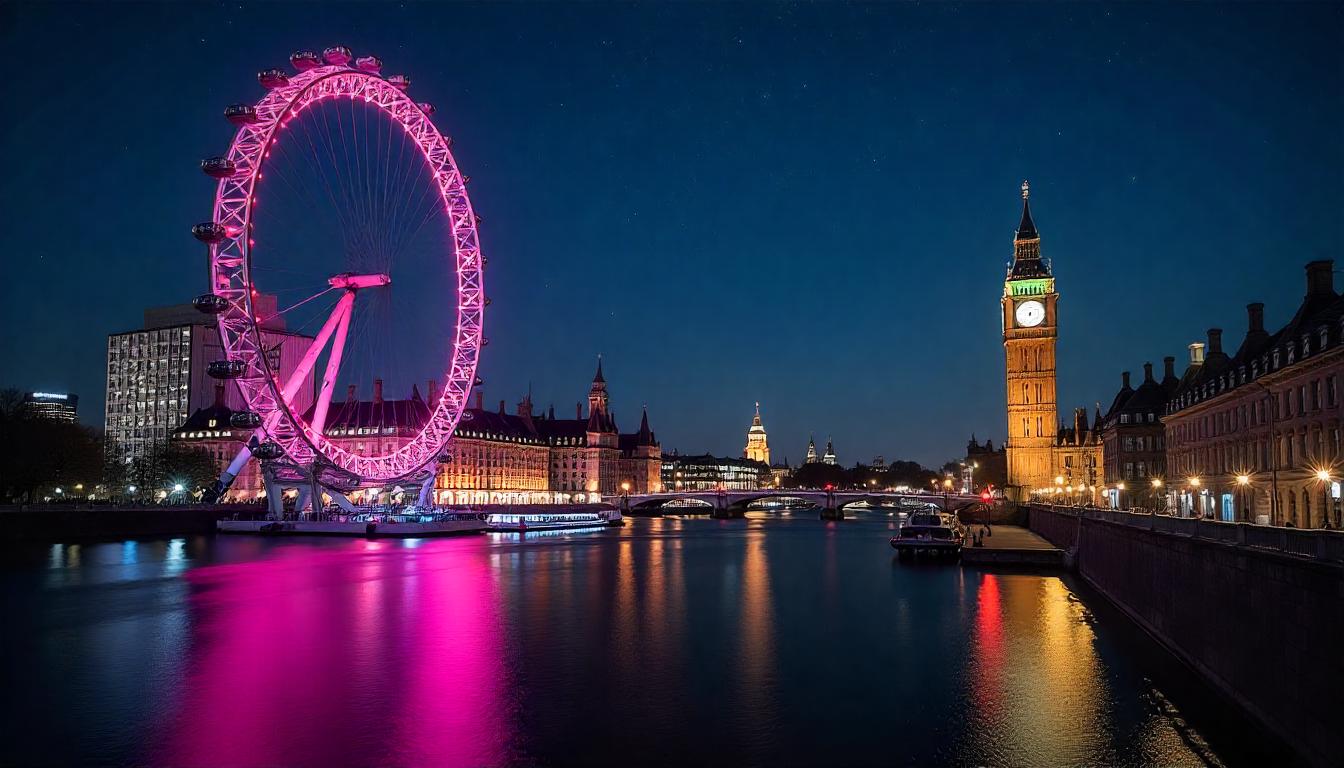Tuesday, February 18, 2025
The UK’s stagnant economy is reshaping travel and tourism in 2025, with rising costs, currency uncertainty, and shifting industry trends. Airfare, hotel rates, and transport fees are increasing, while a weaker pound makes the UK more attractive to foreign visitors. Airlines are cutting routes, hotels are adjusting pricing, and economic uncertainty is forcing travelers to spend more cautiously. With inflation, labor shortages, and unpredictable demand, both travelers and businesses must adapt to a rapidly changing landscape.
The UK economy has remained stagnant since late spring 2024, with weak growth and financial uncertainty affecting industries across the board, including travel and tourism. Bank of England Governor Andrew Bailey has reaffirmed a “gradual and careful” approach to further interest rate cuts, emphasizing that it remains challenging to get an accurate picture of economic inactivity levels.
Despite slightly stronger-than-expected GDP figures for Q4 2024, Bailey has dismissed optimism about the UK economy’s recovery, stating that the overall condition remains largely unchanged. The Monetary Policy Committee (MPC) voted 7 to 2 to cut the base interest rate by 0.25% to 4.5%, with some officials advocating for a larger cut due to a weakening jobs market.
Additionally, the Bank of England revised the UK’s economic growth forecast downward, from 1.5% to 0.75% for 2025. Inflation is expected to peak at 3.7% before gradually declining to 2% by 2027. Meanwhile, labor market inactivity remains a challenge, with approximately 9.3 million people of working age not actively seeking employment—a rate of 21.6% across the UK, with Wales at 25.6%.
The UK’s stagnant economy is significantly impacting the travel and tourism sector, leading to higher costs, currency fluctuations, and evolving industry trends. Meanwhile, external factors such as US trade policies, energy price fluctuations, and geopolitical instability are adding further pressure to the industry.
Higher Travel Costs Amid Economic Uncertainty
The ongoing economic stagnation is contributing to rising travel-related expenses, making it costlier for both outbound travelers and inbound tourists:
Airfare and Transportation
Airlines are grappling with rising operational expenses, notably due to increased fuel prices. In 2025, jet fuel costs are projected to reach $115 per barrel, compelling carriers to adjust ticket prices and implement fuel surcharges.
Additionally, geopolitical tensions have led to airspace restrictions, causing longer flight routes and elevated fuel consumption. For instance, British Airways suspended its London-Beijing flights, citing the economic impracticality of extended routes avoiding Russian airspace.
Hotel and Accommodation Costs
The hospitality industry faces mounting financial pressures from inflation, increased energy expenses, and labor shortages.
In April 2025, the UK government implemented tax changes, including higher national insurance contributions and a raised national living wage, further escalating operational costs for hotels. As a result:
- London hotels anticipate a 3.6% price increase in 2025 due to rising costs.
- Luxury accommodations have seen significant price hikes, with new high-end hotels initially charging up to £1,300 per night, though competition has since moderated these rates.
Public Transport and Administered Costs
Inflationary pressures are also affecting public transportation and other administered services. The Bank of England has highlighted that rising energy costs are driving price increases for services such as bus fares and water charges.
In January 2025, the energy price cap was set at £1,738 for the first quarter, reflecting the ongoing impact of elevated energy prices on household and service costs. (Source: The Guardian)
With many UK residents feeling the strain of economic stagnation, more travelers are making cost-conscious decisions when planning their trips.
Outbound Travel Trends and Spending
Despite economic concerns, British residents have continued to travel abroad. In Q2 2024, UK residents made an estimated 25.3 million visits outside the UK, spending approximately £13.0 billion on overseas travel.
2023 Travel Trends Breakdown by Quarter
The 2023 travel data shows fluctuations in outbound travel, with peak travel occurring in Q3 before declining in Q4:
- North America:
- Q1: 742,000 | Q2: 1,158,000 | Q3: 1,416,000 | Q4: 1,221,000
- Europe:
- Q1: 1,093,500 | Q2: 1,841,100 | Q3: 2,303,300 | Q4: 1,433,800
- EU (Including EU15 & Other EU):
- Q1: 997,200 | Q2: 1,681,800 | Q3: 2,084,500 | Q4: 1,307,100
- Other Countries:
- Q1: 3,605,000 | Q2: 3,831,000 | Q3: 3,871,000 | Q4: 3,644,000
While overall outbound travel remained strong, the economic slowdown in Q4 2023 suggests that travelers may start adjusting their plans in 2025 due to rising costs and financial concerns.
Currency Fluctuations and Their Impact on Travel
The British pound remains vulnerable to volatility, affecting both outbound travel costs and inbound tourism revenue:
- For UK Travelers – A weaker pound means international trips become more expensive, particularly in destinations like the United States and Eurozone.
- For Inbound Tourism – A weaker pound makes the UK a more attractive destination, as international visitors find their currency stretches further when traveling to Britain.
- Global Trade and Tariff Impact – The US government’s tariff policies on steel, aluminum, and other imports could impact global trade, potentially affecting the pound’s value and making international travel more expensive for UK residents.
With exchange rates remaining unpredictable, both travelers and tourism businesses must adapt to sudden cost fluctuations.
Industry Challenges for Airlines, Hotels, and Tourism Businesses
The stagnant UK economy and uncertain inflation outlook are creating major challenges for the travel and tourism industry:
- Airline Industry Adjustments – Airlines are reassessing flight routes, fare structures, and operational expenses as demand fluctuates.
- Hospitality Industry Struggles – Rising costs and a softening labor market may reduce disposable income, leading to lower hotel occupancy rates.
- Labor Market Challenges – With 9.3 million economically inactive working-age individuals, staffing shortages may impact service quality in hospitality, airports, and tourism-related jobs.
Looking Ahead: What’s Next for UK Travel and Tourism?
- UK travelers may adjust spending habits, favoring budget-friendly options, shorter trips, and domestic travel.
- Inbound tourism may rise, as a weaker pound attracts international visitors.
- Tourism businesses will need to innovate, offering flexible pricing and cost-effective experiences.
Despite economic stagnation, travel remains a priority. However, with inflation, labor shortages, and currency fluctuations, adaptability will be key for both travelers and the tourism industry in 2025.
Tags: Tourism news, travel industry, Travel News, UK
Related Posts
Tags: Tourism news, travel industry, Travel News, UK
Your email address will not be published.
I want to receive travel news and trade event update from Travel And Tour World. I have read Travel And Tour World’sPrivacy Notice.
Tuesday, February 18, 2025
Tuesday, February 18, 2025
Wednesday, February 19, 2025
Wednesday, February 19, 2025
Tuesday, February 18, 2025
Tuesday, February 18, 2025
Wednesday, February 19, 2025
Wednesday, February 19, 2025







Comments: